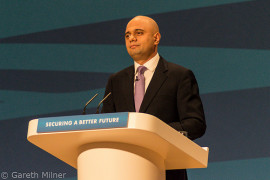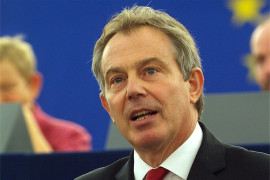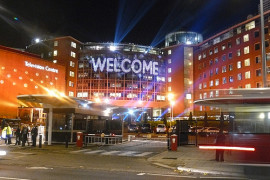The BBC made it abundantly clear who they wanted to win this election. The interview by Mishal Husain of Nigel Farage which was highlighted here, is a typical manifestation of their subtle-as-a-brick approach.
To protect the licence fee and their imperialist, state-protected dominance of the UK’s media, they desperately wanted in power an alliance of Labour, SNP and the Greens.
So from inside their blinkered metropolitan bubble, they worked consistently to ridicule anything they saw as opposition. Then there was bias by omission, an avoidance of discussion as much as possible of issues such as the EU and immigration control.
Another strand was that no opportunity was missed to play up Nicola Sturgeon’s brilliance.
In the same vein, almost every utterance by Ed Miliband was treated with fawning reverence. It’s no wonder he had his Moses tablet moment. The BBC was already treating his policies as the Holy Writ.
Throughout the campaign were interviews and features in these deep grooves. Amongst the most obvious examples was this, spotted by expert BBC-watcher Craig Byers on Radio 4’s the World Tonight on the eve of the election. The BBC’s version of ‘fairness’ was three strident anti-austerity voices against only one very moderate local businessman. He was actually one of the few people in the country who favoured a continuation of the Coalition.
Another example was the approach of Mark Mardell. His biting anti-Ukip tone was especially pronounced in a stream of negative invective in his commentary in this interview sequence during the 2009 European election. His main thrust was that Ukip are the British National Party in blazers. Mardell’s interview on the World This Weekend of Mark Reckless five days before the 2015 poll was every bit as negative. It was as if nothing had changed – to him, four million Ukip voters are definitely wrong.
Ex-Europe editor Mardell’s interview on the World This Weekend five days before the 2015 poll was every bit as negative. It was as if nothing had changed – to him, four million Ukip voters are definitely wrong.
As part of their election campaign, on top of this blatant bias in interviews, the Corporation used their vast resources to commission rafts of programming that crudely rubbished opponents: drama that was so left-wing that it was risible, so-called comedy that savaged anti-austerity, and endless programmes that in different ways promoted multiculturalism and green agendas.
But despite all their efforts, a result that Tony Hall and his lefty-packed Management Board dreaded has now come to pass. Middle England, thank God, despite BBC’s relentless torrent of propaganda, have different concerns.
Back in 1997, observers noted that after the Blair landslide, the corridors of Broadcasting House were strewn with empty champagne bottles. It marked 20 years of continuing gravy-train financing.
Prospects are not so rosy now, and Lord Hall and his board will no doubt be locked his week in WIA-style meetings to recalibrate their survival campaign.
The news that John Whittingdale – twice shadow culture secretary and chair of the Commons Media Committee for a decade – has become Culture secretary looks on the surface an appointment that could lead to significant change and even some kind of assault on BBC bias.
He is decent man who is on record as saying forcefully that he cannot see the licence fee lasting for more than 10 more years. He has also said he wants BBC governance altered so that the current lapdog trustees are replaced by a body that has genuine independence and will hold the Corporation properly to account.
On top of that, change cannot be stalled: Charter renewal has to be agreed in time to come into effect at the beginning of 2017. Suddenly Lord Hall might be ruing the appointment of former Labour minister James Purnell as his policy advisor.
But it might not yet be time to anticipate definite improvements.
Elsewhere there are abundant signs that life rafts won’t actually be necessary for the BBC or any of the liberal-left concerns that Cameron has championed rather than attacked. The administration now assuming office is not rooted any more in genuine principles of conservatism, free speech or social liberalism. This article on Spiked by deputy Tim Black, sums up the current position neatly:
“In fact, the Conservative Party under David Cameron’s near-decade-long tenure has been in the process of being emptied of any distinctive political content. Traditional commitments have been thrown over, like so much unnecessary ballast. The Union, the family, let alone economic liberalism, barely register as Conservative touchstones anymore….
“… the Tory Party’s raison d’être is to define itself against itself, to affirm its modern identity by negating and trashing what it was. This process of ‘detoxification’, of so-called modernisation, this party-political cleansing, this determination to jettison the political past, has been the defining cause of the modern Conservative Party.”
The most immediate and compelling evidence of this is the appointment of Amber Rudd as climate secretary. She is a total climate alarmist – so much so that the Guardian has welcomed her appointment.
It boils down to that in many respects, the Conservatives are now part of the same metropolitan bubble as Labour, the SNP the Greens and the Liberal Democrats. Janet Daley of the Telegraph describes it adroitly here. The BBC remains the ringmaster of their interpretation of public opinion. To them all, the rest of the UK is a different country. 4m Ukip votes? They don’t give a stuff about any of them.











